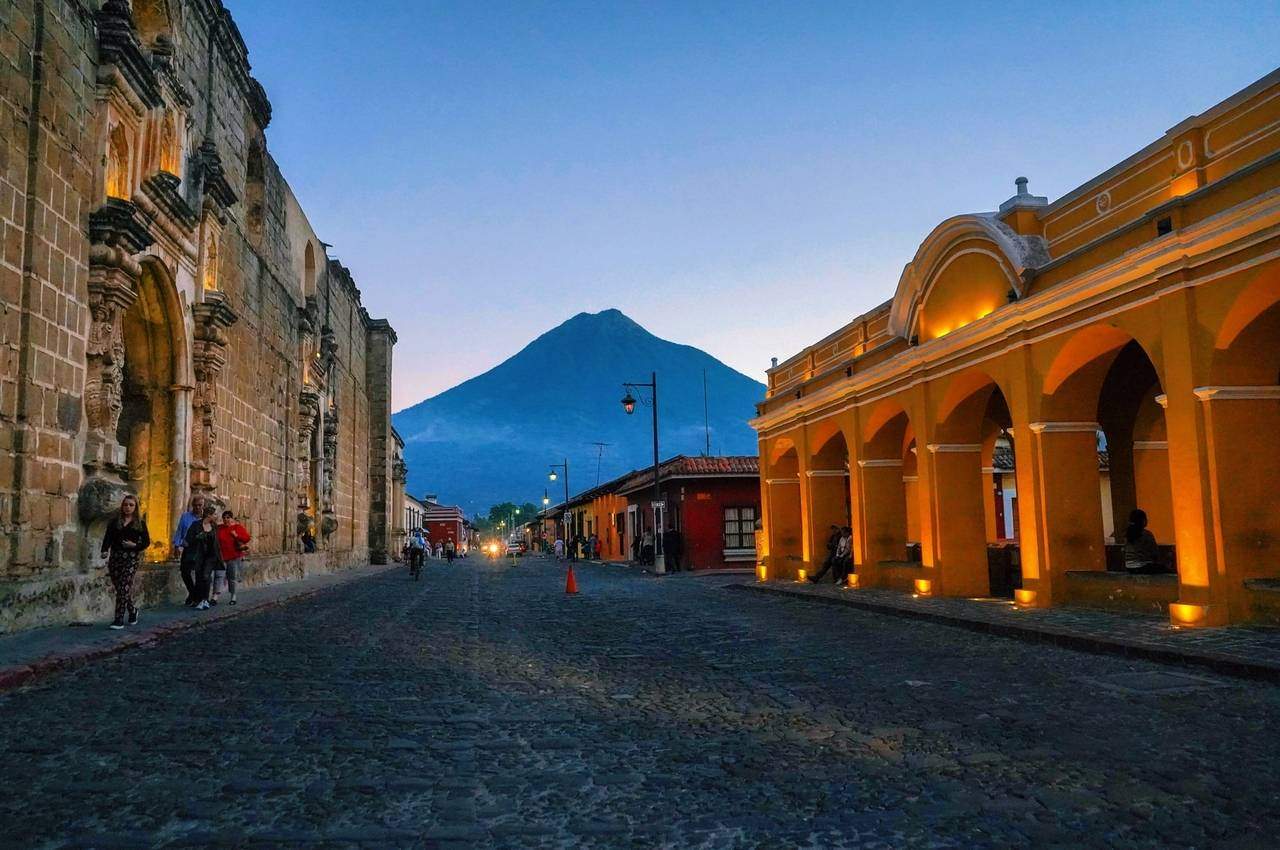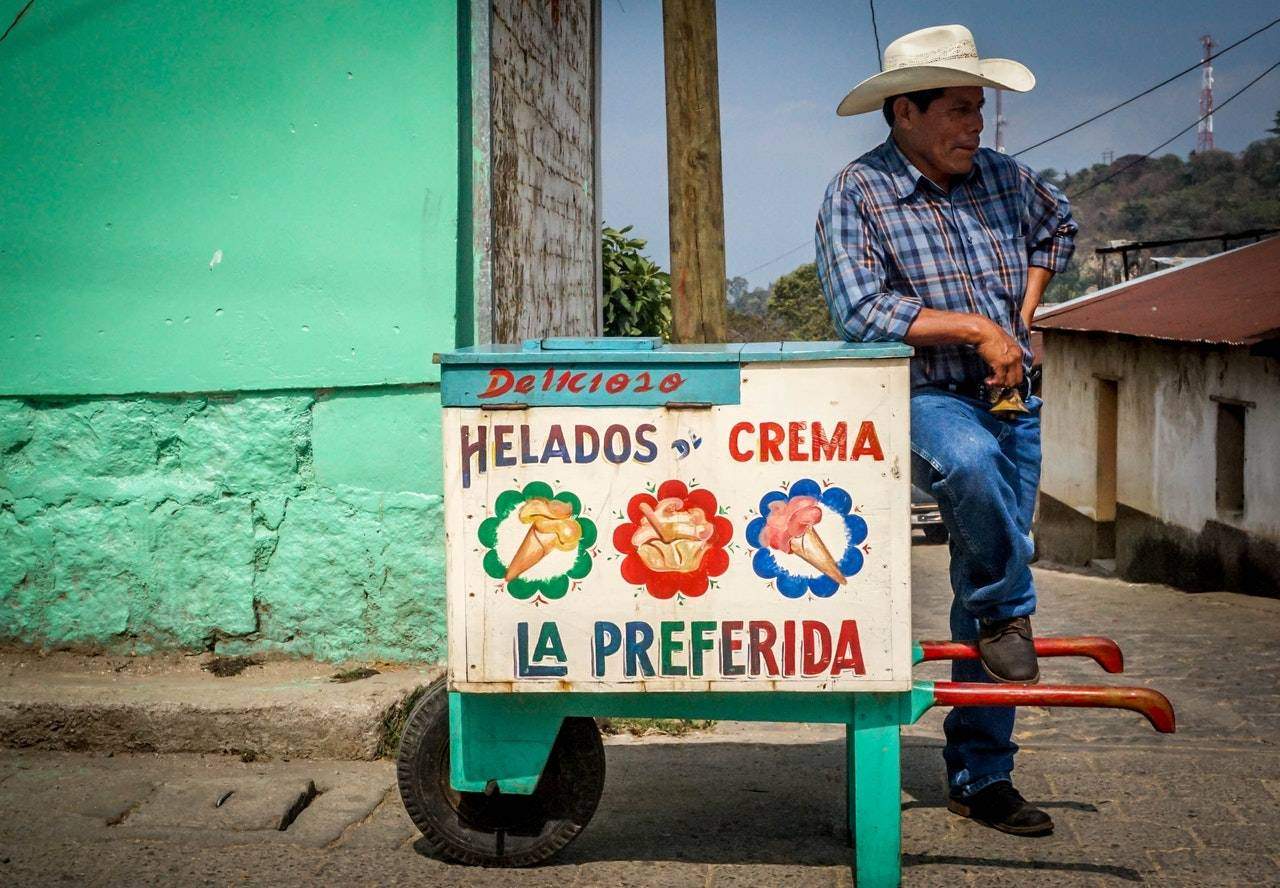
The 10 Most Common Guatemalan Slang Words You’ll Hear from a Real Chapín
DATE:
Latin America is absolutely full of different accents that will make you doubt if you’re ever going to really “get” Spanish.
(P.S. You’re in this for life, my friend)
But that’s part of the joy of learning a language. The Spanish vocabulary is incredibly rich and each country has its own ways of bringing out the best in the language.
Guatemala, a small country south of Mexico, has a lot of different slang words that really make it stand out linguistically. So whether you want to travel to this tropical country, or you just want to impress some of your amigos guatemaltecos, get ready to learn some Guatemalan slang.
Guatemalan Spanish
A common story to hear in the Americas, Guatemala is home to many different indigenous languages, even though today the most common language is certainly Spanish.
However, some of the native Mayan languages are still present in the region, so these languages, along with some Nahuatl vocabulary, make their way into modern-day Guatemalan Spanish (the only official language).
So naturally, this is one of the Spanish-speaking countries that have a lot of interesting Spanish slang words.
So here is a list of the top 10 most commonly used Guatemalan slang words:
|
Spanish |
English |
|---|---|
|
Aguas |
Careful! |
|
Chapín / Chapina |
Guatemalan |
|
Boquitos |
Snacks |
|
Chilero |
Cool |
|
Chucho |
Stray Dog / Greedy person |
|
Sho |
Shut up |
|
Cerote |
Dude |
|
Clavo |
Embarrassment |
|
Burra |
Bus |
|
Agarrá la onda |
To understand |
1. ¡Aguas!
This is a common expression that Guatemalans share with their northern neighbors. The literal translation is “Waters!”
But of course, you don’t just use it to tell people when there is water nearby. This is an interjection that is used to tell someone to be careful.
For example, if you’re about to cross the street without looking, someone might yell “¡aguas!” In countries outside of North and Central America, people will often use the word “cuidado” to have the same meaning.
2. Chapín / Chapina
This is the most typical Guatemalan slang used to refer to another person from Guatemala. Chapín for a male and Chapina for a female. It’s not really used offensively, but it is used casually.

Kind of like how you might hear your friend talk about some “American dude” or some “Canadian chick”. It’s not offensive at all, but definitely not formal, either.
If you’re in a more formal situation, the official gentilicio is guatemalteco/a.
As an interesting Spanish fact, the word Gentilicio doesn’t exist in English, but it means “the word used to refer to a group of people”. Things like Englishmen or Spaniards would be examples of gentilicios.
3. Boquitos
This handy little word is one of those slang terms that actually makes quite a lot of sense. Boquitos comes from the diminutive form of “boca” (mouth). So that means that this is actually Guatemalan slang for bite-sized food.
In other words, a snack.
It’s common in the Hispanic world to eat little appetizers before the main meal, so you might eat some boquitos before having lunch.
- ¿Qué hay de boquitos?: Do we have any snacks?
4. Chilero
It seems like literally, every region has its own slang term to say that something is cool. Guatemala is no different.
This phrase is commonly used to refer to something that’s cool or awesome when you’re talking, especially as an interjection. For example, you could use it as an adjective to describe something as chilero with a ser or estar verb or you could just say, “¡qué chilero!”
5. Chucho
In general, chucho is a very difficult word to translate because it has a different meaning nearly everywhere you go.
In Guatemala, it can be a slang term for a dog. But, for example, it can also be used to describe a person who is really greedy or stingy. And at the same time, it can also be referring to a car tire.
So really, you have to pay attention to the context if you want to understand the conversation
6. Sho

Are there any phrases that are more Guatemalan than sho?
You can use this in different contexts, but most frequently it is used with friends when you want to tell them to stop talking and listen to you. Literally, it’s a bit like telling them to “shut up”, but it doesn’t necessarily come off as vulgar as in English.
For example, when you’re with a group of close friends, you might want to get their attention, so you tell them to be quiet so they listen to you. In the rest of the Spanish-speaking world, people will say something like “escucha” or “escuchen / escuchad”.
Because let’s face it: sometimes you just need to be the loudest of your friends when speaking Spanish if you want to get everyone’s attention.
However, it can have a stronger meaning, especially if said in an offensive tone. If someone is bothering you, then this is one of the slang terms you can use to tell them to be quiet and go away.
7. Cerote
In most of the world, this word means animal feces. However, in Guatemala, it is a term of endearment for a friend.
- ¿Qué tal, cerote?: What’s up, dude?
Interested in learning more terms of endearment in Spanish? Go click that link!
8. Clavo
While this word literally translates to “nail”, in Guatemala it takes on a very different meaning. You can use this to say you have a big problem with someone. It’s a pretty good slang term that is similar to how in English, people used to say they had “beef” with someone.
Though “nail” probably makes more sense if you’re talking about something painful connecting two people.
- Desde entonces, tienen clavo: Since then they’ve had a problem with each other.
9. Burra
The translation for this word is “female donkey”, but here this word has nothing to do with the animal.
It’s simply one of the many words in Spanish for “bus”. So if you need to catch a bus in Guatemala, you can ask someone where you can take the burra.
- La burra no viene hasta las dos: The bus doesn’t get here until two
As a side note, check out the Guatemalan chicken buses if you’re interested in their unique transportation system.
10. Agarrá la onda
This is another good example of slang phrases that are common in many parts of North and Central America. In a literal sense, it means something like “catch the wave”.
In Guatemala, it’s used to mean that you understand something. It’s like saying, “Ah, of course, I get it”.
In some regions, it also has the additional meaning of understanding something, but then also adapting to the changes. As in, you get it and you go with it. Usually, you’ll use the phrase right before you continue to explain the situation.
- Agarrá la onda, que mi jefe metió las patas, y a mí me estaba echando la culpa. – I get it, my boss messed up and he’s blaming me for it.

Use what you learned
Now you should be ready to use all of your Guatemalan slang on the street or on the chicken bus. As a final tidbit of information, do you know where the name of the country comes from?
It comes from the native Nahuatl word Quauhtlemallan, meaning “the place of many trees”. So if you go visit, make sure you show off your knowledge.
Pick some of your favorite slang terms and practice them. Or better yet, talk to some native speakers and learn some new expressions.
If you’re looking for the support of an incredible teacher, we can help. Try a free private class or a 7-day free trial of our group classes so you can practice what you learned.








